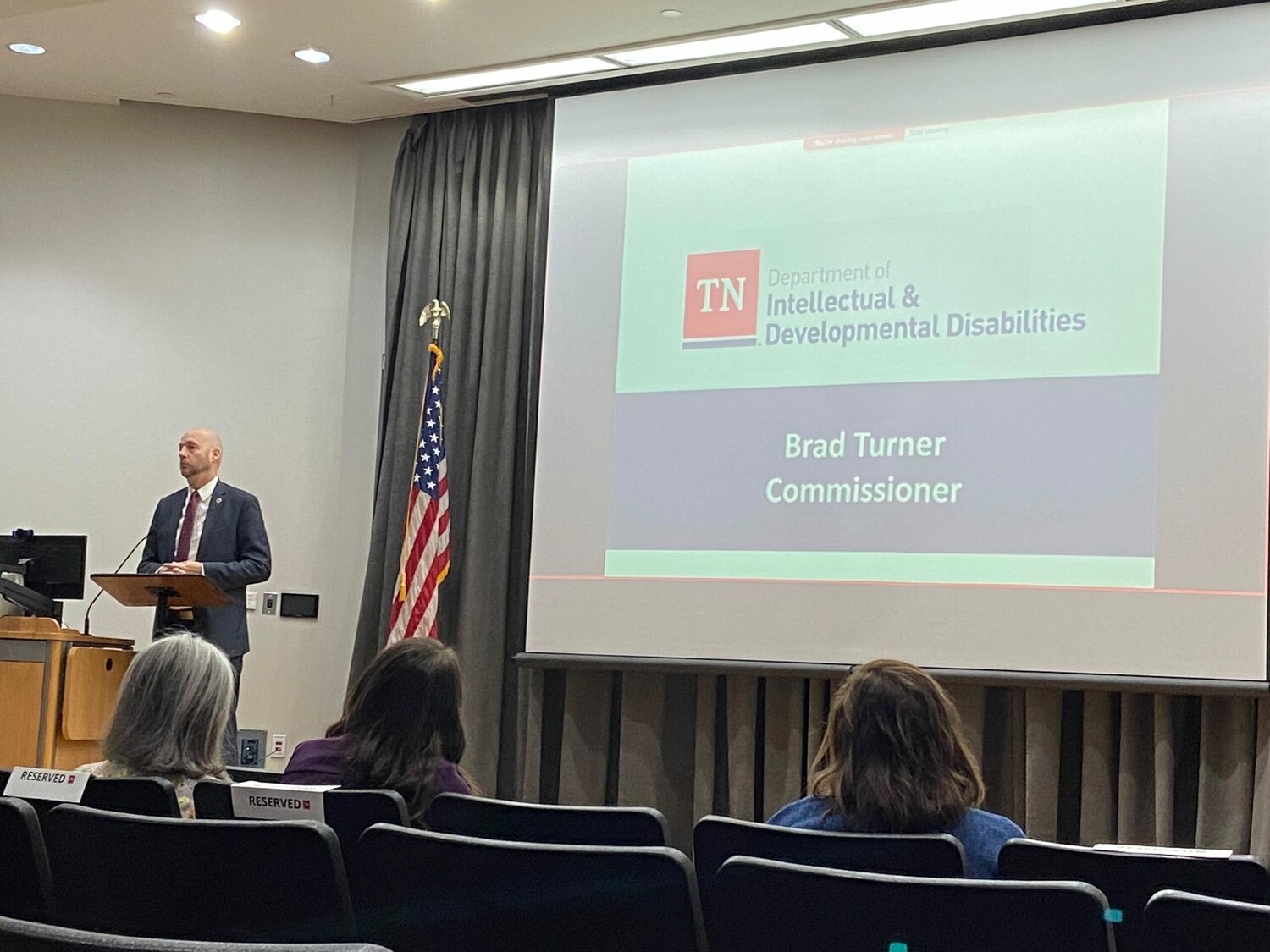Commissioners speak on care for aging population at JSCC
The Ned McWherter Center on the campus of Jackson State Community College hosted a conference on Monday of officials at the local and state level involved in public health and caring for the aging and special needs populations of West Tennessee.
Among the speakers at the conference were Tennessee Health Commissioner Dr. Ralph Alvarado and Brad Turner, the commissioner of the state’s Department of Intellectual and Developmental Disabilities.
Turner’s department doesn’t technically exist yet until July 1, but Gov. Bill Lee asked the state legislature to give the OK to create the new department during the most recent legislative session, which they did.
“My vision for this role is to improve the overall health of everyone in the state across the board,” Alvarado said during his opening remarks. “And when I came in, as a state we ranked No. 44 overall in public health and No. 42 in care for the elderly.
“There’s opportunity for us to improve in the rankings there, and that’s needed anyway.”
Alvarado explained that with 2.5 million people having moved to the state in the last three decades, another million moving to Middle Tennessee in the next decade and 25% of the state’s current population being 60 years old or older, the need for more conversations about how to care better for the state’s elderly is becoming more and more important.
He pointed out a few local people in the room who can help in that conversation. Among them were Jackson-Madison County Regional Health Department Director Kim Tedford and State Representative Johnny Shaw.
“Fortunately we have people like Commissioner Turner and Representative Shaw who see the importance of this conversation at a statewide level, and Gov. Lee sees it too,” Alvarado said.
Turner said one of the first jobs of his new department is looking at parallels between the disability population of Tennessee and the aging population.
“There are a lot of similar challenges on different levels, which means there are similar tools to help each group,” Turner said. “But there are plenty of challenges unique to each population as well.”
Turner discussed the impact of dementia and Alzheimer’s on the state, as dementia is the No. 6 cause of death in the state, fourth in women.
“And I think in times past we’ve dismissed the impact of mental health on the aging population, and we’re starting to reverse that trend and have some difficult but necessary conversations about how those two things intersect,” Turner said. “I’ve had a number of discussions with Marie Williams, our Commissioner of Mental Health and Substance Abuse Services to see how we can partner together to really address this issue across the state.”
One other statewide issue that Turner said he plans to address is the disparity in equity issues statewide.
“It’s time to be honest with ourselves and have those conversations to see exactly what those disparities are,” Turner said. “Because I assure you the mother of the child with a disability in the inner city loves her child and wants opportunities for her child as much as the mother in the same situation in a rural environment.
“So we’re aiming to ensure that both mothers have equal access to those opportunities and tools that can help both of their children.”Brandon Shields, brandon@jacksonpost.news






